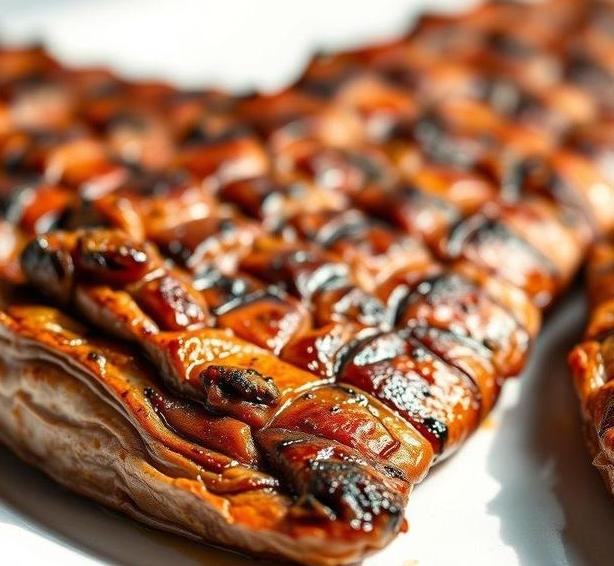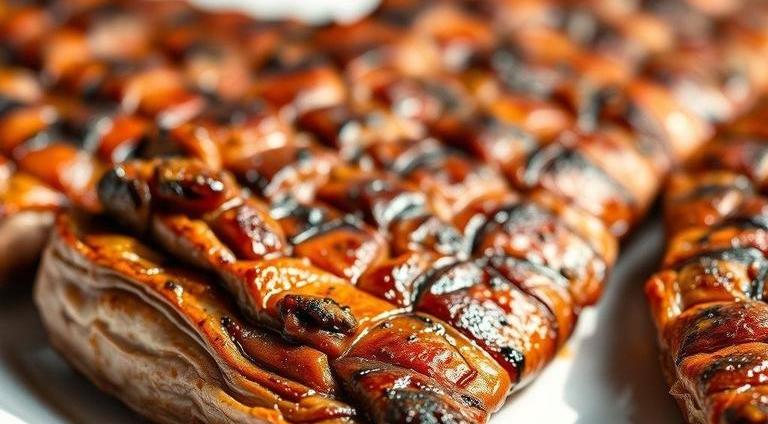Alligator meat is one of those unique delicacies that doesn’t come up on the dinner table every day, but when it does, it can be a real treat. For those who are familiar with it, alligator meat is often described as having a mild, chicken-like flavor, with a firm texture that can be compared to fish or even pork in certain cuts. Whether you’re cooking up alligator tail, ribs, or sausage, it’s essential to know how to properly handle and store it to preserve its freshness and quality.
But what happens if you accidentally leave it in the fridge a little too long or forget to freeze it? Just like any other type of meat, alligator can spoil, but how do you tell if it has gone bad? In this guide, we’ll dive deep into everything you need to know about the shelf life, spoilage signs, and the best ways to store alligator meat, so you never have to wonder if you’re eating something safe (or not).
Can Alligator Meat Go Bad?
Absolutely! Alligator meat, like any other type of protein, is perishable and can go bad if not stored or handled correctly. It’s not immune to the natural processes of bacterial growth and oxidation that affect other meats, such as beef, chicken, or pork. When not kept in ideal conditions, alligator meat can become unsafe to eat, develop off-putting smells, and lose its texture.
There are many factors that contribute to the spoilage of alligator meat, and these can range from the quality of the meat when purchased, to how it’s been stored at home, and even the duration of time it’s been left out. Like with any protein, the risk of spoilage increases with improper handling or poor storage practices.
Shelf Life For Alligator Meat

The shelf life of alligator meat depends on several factors: how fresh the meat was when purchased, how it’s been stored, and whether it’s been cooked or remains raw. Below is a detailed breakdown:
-
Fresh Alligator Meat (Raw)
- Refrigerated: If stored properly in the fridge (at a temperature of 40°F or below), raw alligator meat typically lasts for about 1-2 days. It’s best to cook or freeze it as soon as possible to ensure the best quality and safety.
- Frozen: If you’re not planning to cook it right away, freezing is your best bet. When kept in an airtight container or vacuum-sealed, alligator meat can last in the freezer for 6-12 months without losing its flavor or texture.
-
Cooked Alligator Meat
- Refrigerated: Once cooked, alligator meat should be consumed within 3-4 days if stored in an airtight container in the fridge.
- Frozen: If you want to extend the shelf life of cooked alligator meat, freezing is a good option. It will stay safe for about 2-6 months in the freezer, although its texture may change slightly after thawing.
-
Processed Alligator Meat (e.g., Sausage, Jerky, Or Pre-cooked Dishes)
- Refrigerated: For processed alligator products like sausages or jerky, the shelf life can vary. Generally, it will last about 1-2 weeks in the fridge.
- Frozen: Processed alligator products can be frozen for up to 6 months for the best flavor and quality.
Common Signs Of Spoilage
Knowing when your alligator meat has gone bad is key to preventing any potential health risks. Here are the top signs to look out for:
- Offensive Smell: One of the most obvious signs that alligator meat has spoiled is a foul or sour smell. Fresh alligator should have a clean, slightly fishy scent but nothing overpowering. A strong, rancid odor indicates spoilage and should be a clear red flag.
- Change in Color: Fresh alligator meat is typically a pale white or light gray color. If the meat starts turning a yellowish, greenish, or brownish hue, it’s a sign that bacteria have started to break down the proteins in the meat. This color change is especially noticeable along the edges.
- Slimy Texture: Fresh alligator meat should feel firm to the touch. If the surface becomes slimy or sticky, that’s a sign of bacterial growth and the onset of spoilage. Avoid consuming any meat that feels overly slick.
- Off-Taste: If you happen to eat a small piece and it tastes sour or “off”, it’s best to stop eating it immediately. This is a strong indication that the meat is no longer safe to eat.
- Presence of Mold: If you see any mold growing on the surface of the meat, it’s time to discard it. Mold indicates contamination and means the meat should not be consumed.
How To Store Alligator Meat?

Proper storage is the key to extending the shelf life and keeping your alligator meat as fresh as possible. Here are the best practices for storing both raw and cooked alligator meat:
Expert Tips
- Freeze Fresh Meat Immediately: If you know you won’t be cooking the alligator meat within a day or two, freeze it as soon as possible to lock in its freshness and prevent spoilage.
- Vacuum Sealing: If you have access to a vacuum sealer, this is one of the best ways to store alligator meat for long-term freezing. It reduces exposure to air, which helps preserve the meat’s quality.
- Thawing Properly: When you’re ready to cook frozen alligator meat, always thaw it in the fridge or in cold water. Never leave it out at room temperature to thaw, as that can lead to bacterial growth.
- Check for ’Use By’ Dates: If you’re buying pre-packaged alligator meat, make sure to check the expiration date or use-by date on the packaging. While fresh alligator has a short shelf life, pre-packaged versions may have added preservatives that can extend freshness.
- Know Your Supplier: If you’re buying fresh alligator meat from a butcher or online supplier, ask about its handling and storage practices. A trusted source will ensure that the meat arrives in optimal condition, which helps you avoid buying something that’s already on the edge of spoiling.
FAQs
How Long Can Alligator Meat Be Stored Before It Goes Bad?
Alligator meat can be stored in the refrigerator for up to 1-2 days if it is fresh. If frozen, it can last up to 6 months without significant loss of quality.
What Are The Signs That Alligator Meat Has Gone Bad?
Signs that alligator meat has gone bad include an off or sour odor, a slimy texture, discoloration (such as a greenish or greyish hue), and a change in firmness. If the meat is sticky or feels unusually soft, it should be discarded.
Can Alligator Meat Spoil If It Is Stored At The Wrong Temperature?
Yes, alligator meat can spoil if it is stored at temperatures above 40°F (4°C). It is important to store it at or below this temperature to prevent bacterial growth, which can lead to foodborne illness.
Can I Eat Alligator Meat If It Smells Bad?
No, if alligator meat has a strong, unpleasant odor, it is a clear indication that it has spoiled and should not be consumed. Consuming spoiled meat can result in food poisoning.
Is It Safe To Freeze Alligator Meat?
Yes, freezing is a safe method for preserving alligator meat. Properly packaged and stored in an airtight container or vacuum-sealed bag, it can be frozen for up to 6 months without significant loss of quality.
How Can I Tell If Frozen Alligator Meat Has Gone Bad?
Frozen alligator meat that has been stored for too long may suffer from freezer burn, which causes discoloration and dry patches. While it may still be safe to eat if cooked properly, its texture and flavor may be compromised.
Can I Thaw And Refreeze Alligator Meat?
It is not recommended to thaw and refreeze alligator meat, as this can cause the meat to lose its texture and flavor. Additionally, repeated temperature changes increase the risk of bacterial growth.
How Should Alligator Meat Be Stored To Prevent It From Going Bad?
Alligator meat should be stored in the refrigerator at 40°F (4°C) or below. If not consumed within 1-2 days, it should be frozen in an airtight container to prevent spoilage.
What Happens If I Eat Spoiled Alligator Meat?
Eating spoiled alligator meat can lead to food poisoning, with symptoms such as nausea, vomiting, diarrhea, abdominal pain, and fever. If you suspect you have consumed spoiled meat, it is important to seek medical attention.
Can I Tell If Alligator Meat Has Gone Bad Just By Looking At It?
While discoloration and a slimy texture can be visible signs of spoilage, it’s important to also check for an unpleasant odor and the meat’s firmness to fully assess whether it has gone bad. Trust your senses when evaluating meat for safety.